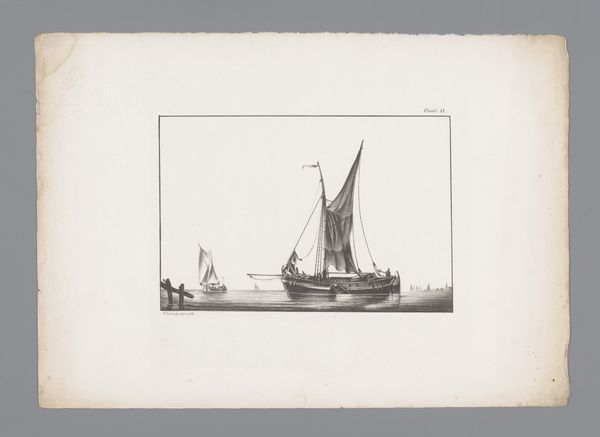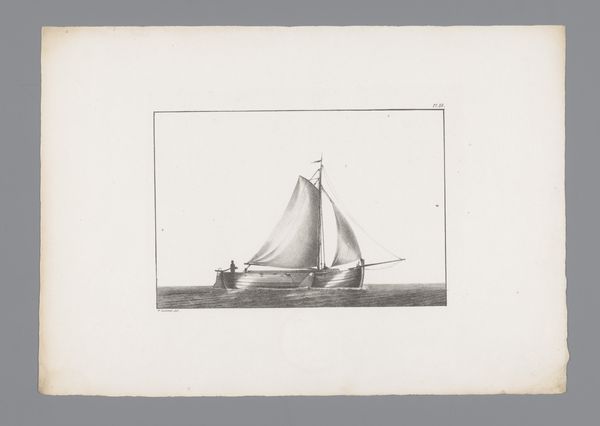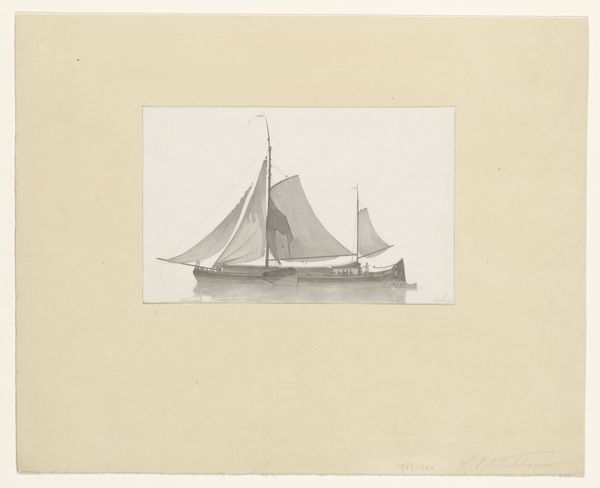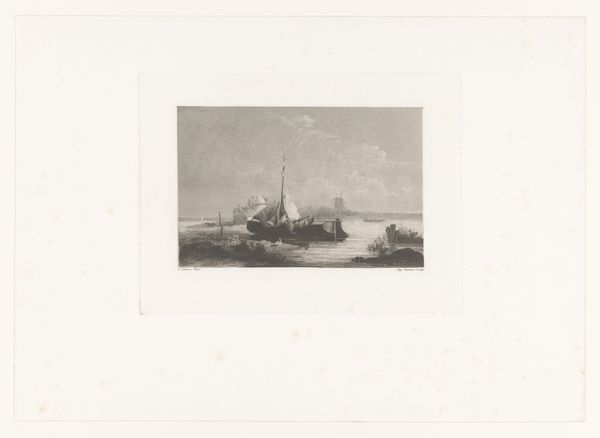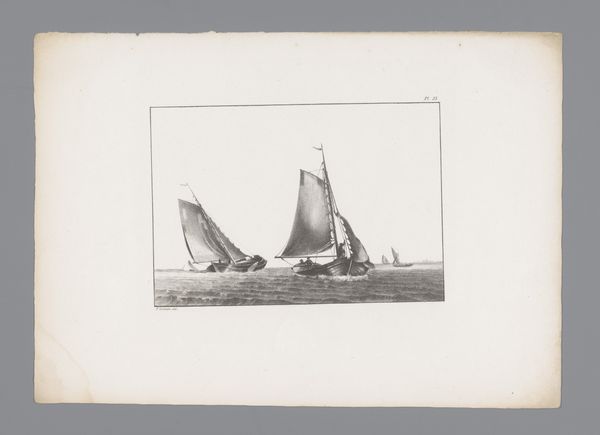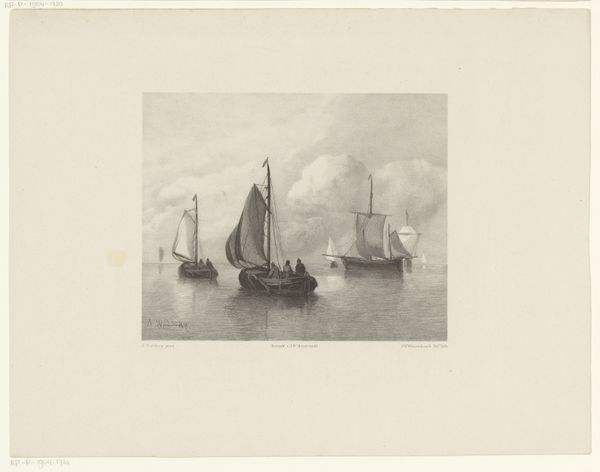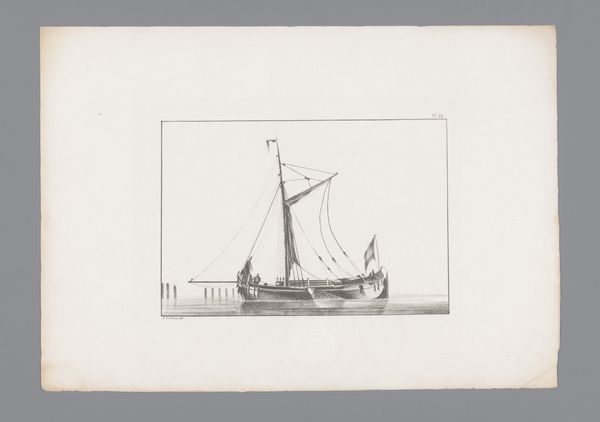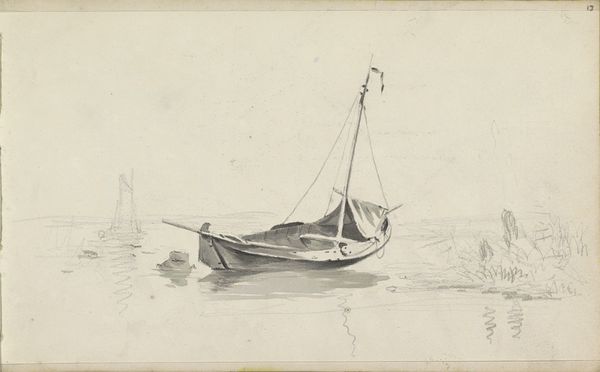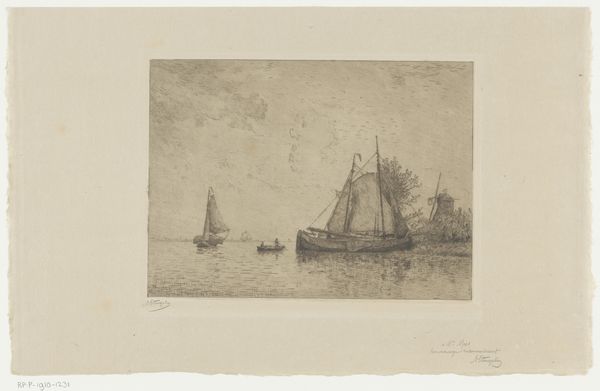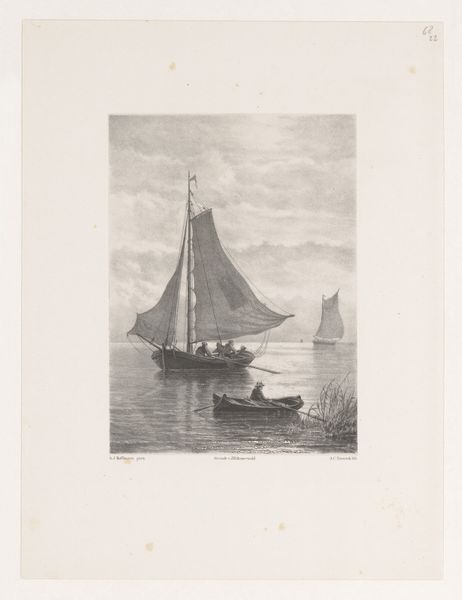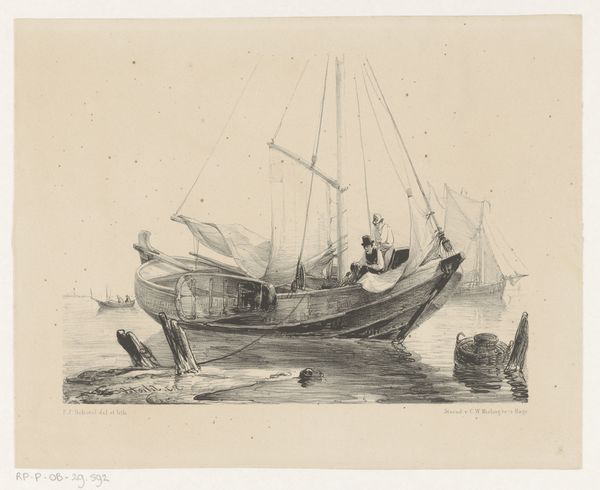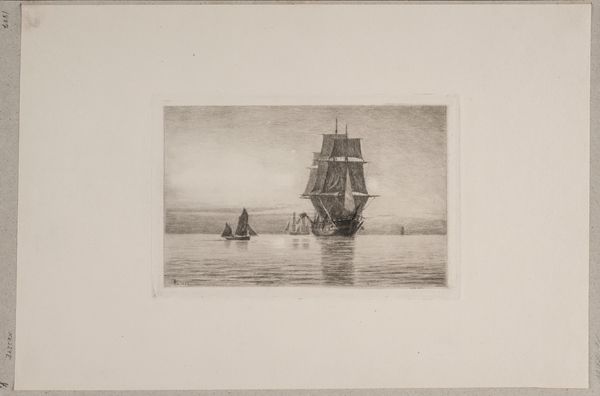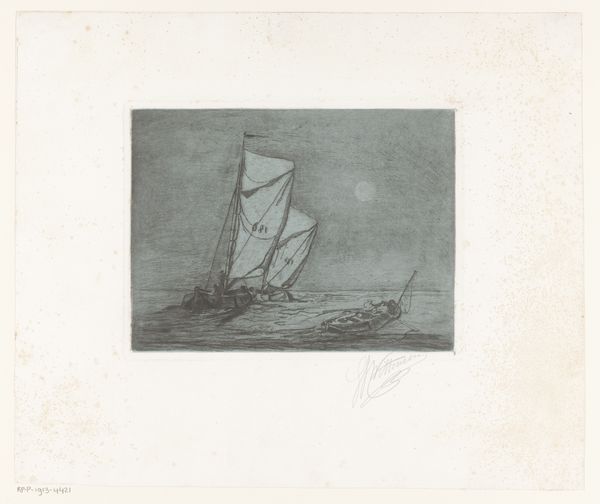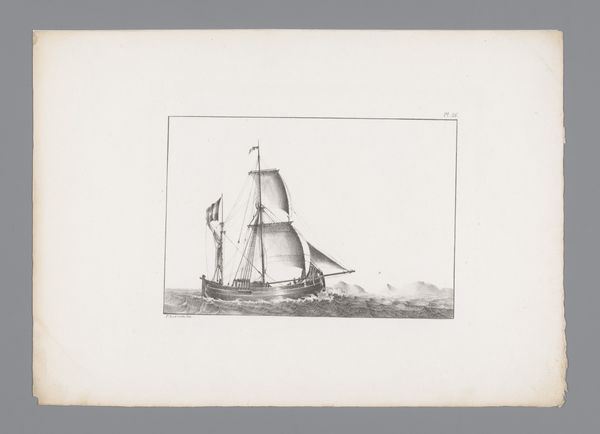
drawing, pencil
#
drawing
#
pencil sketch
#
landscape
#
pencil
#
pencil work
#
realism
Dimensions: height 224 mm, width 320 mm
Copyright: Rijks Museum: Open Domain
Curator: Looking at Pieter le Comte's "Zijdse bom of visserspink" from 1831, I find it interesting that the artist chose the humble pencil as their medium, despite the rise of industrialization. Editor: Yes, it is quite a contrast. This drawing, done in pencil, depicts fishing boats, with very delicate lines defining them, so unlike the booming industry around it. What catches your eye? Curator: What strikes me is the clear emphasis on craft. The meticulous rendering of the wood and rigging challenges this narrative. He's focusing our attention on the materiality of shipbuilding, on the skills of the craftspeople who built these vessels. Consider the paper, too - what does that say about accessibility to the raw materials used by Le Comte in contrast to the production of ships in 1831? Editor: So, the pencil sketch becomes a quiet commentary on the labor and resources that fuel maritime activity? I mean, I see a couple of fishing vessels with sails and people... Curator: Precisely! The texture and form highlight their function as working vessels. Think of the societal context; these materials, pencil and paper, represent a form of artistic labor, and the resulting image highlights the relationship with the work involved in seafaring, which would have defined the artist's cultural moment. Editor: That's a great perspective. So it's less about the pretty picture of boats and more about the implied work. I never considered it that way. Curator: Exactly, and who the work serves! Editor: Okay, now I see those delicate lines with so much more insight, a new way of considering this art work. Curator: And to think about the means of making marks; how different these were from the labour they show.
Comments
No comments
Be the first to comment and join the conversation on the ultimate creative platform.
